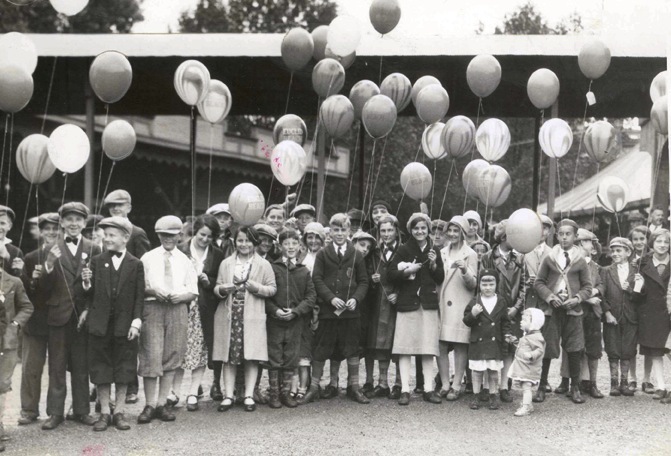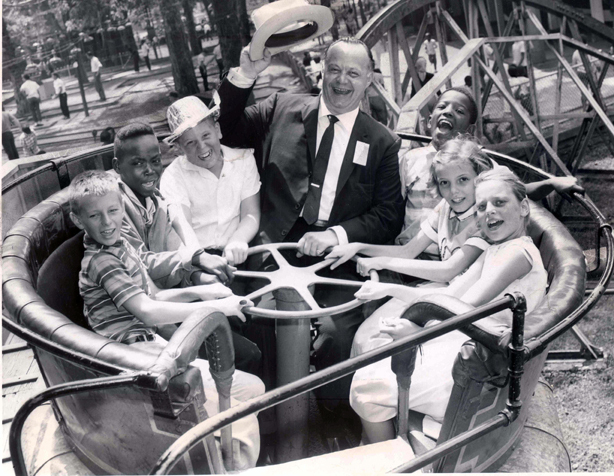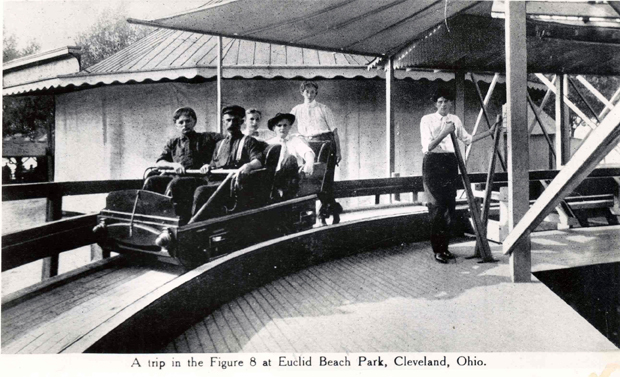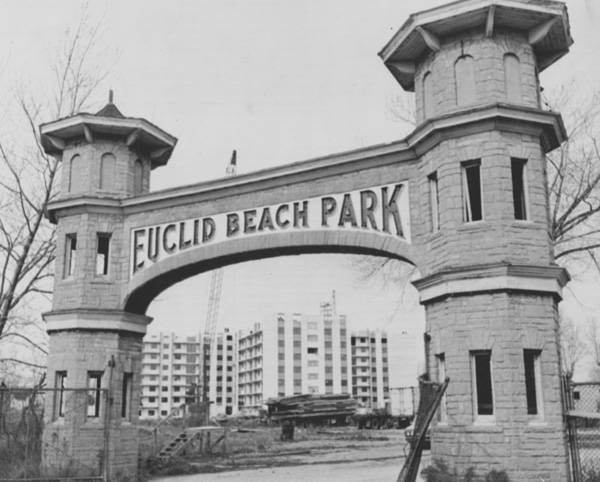
In 1901, Dudley S. Humphrey became the owner of Euclid Beach amusement park, vowing to make the park a respectable, family friendly place for recreation. He had previously run a popcorn stand at the park, though the prevalence of alcohol, freak shows, and gambling under the old ownership did not mesh with his Protestant values. Humphrey's new Euclid Beach, where everything was guaranteed to be "of a highly moral and elevating character," instantly became a success. The park no longer had an admission fee, so one could enjoy a day at the park for little or no money. Streetcar companies introduced single fare service to the park, making getting there cheap and convenient too. Euclid Beach Park proudly touted these new, improved features with the motto: 'One Fare – Free Gate – No Beer.'
Occupying 90 acres of lakeshore property near the Collinwood-Euclid township border, the park grew rapidly under the Humphrey family management to add unique food options, attractions, amusements, and recreational resources for Cleveland’s growing population during the first half of the 20th century. A park railway connected beach and fishing facilities with a dancehall, theatre, and roller skating rink. A Ferris wheel, merry-go-rounds, and a funhouse were among the 157 "spaces and structures" on the park’s map. Rocket cars, roller coasters of all sizes, flying scooters, and "dodgem" cars attracted visitors of all ages as well as the park's arcade. Hundreds of local company and organization picnics filled the Euclid Beach schedule every season. Concerts and political rallies also marked the calendar. All tolled, millions of visitors enjoyed Euclid Beach during the 69 Humphrey management years with some event crowds rivaling the local pro sports gatherings of 85,000 plus.
The Humphrey's vision of Euclid Beach Park, sadly, also involved the strict regulation of African American visitors, who were admitted to the park but prevented from using all of its facilities. These practices culminated in a series of protests and violent incidents during the summer of 1946, prompting the mayor to order the park closed a month early. From that point on, the park's dancehall – whose racial policies had been the target of many of the protests – remained closed to the public. Nevertheless, Euclid Beach remained popular in the years after World War II but ultimately closed in 1969.
Although it has been closed since 1969, Euclid Beach lives on throughout Northeast Ohio in a number of ways. Cleveland Metroparks assumed management of Cleveland’s lakefront parks in 2013. A visit to Wildwood Park, which occupies the site of Euclid Beach amusements and the lakeside beach, now accommodates visitors, boaters, and swimmers in a park setting. In addition, even those too young to have visited the park themselves can still take a ride on the rocket car, crunch into an authentic Humphrey popcorn ball, hear the quavering cackle of Laughing Sal, and enjoy the park's 1910 carousel, lovingly restored after being rescued from a shuttered amusement park in Maine, in its new location at the Western Reserve Historical Society in University Circle.
Video
Audio
Images










